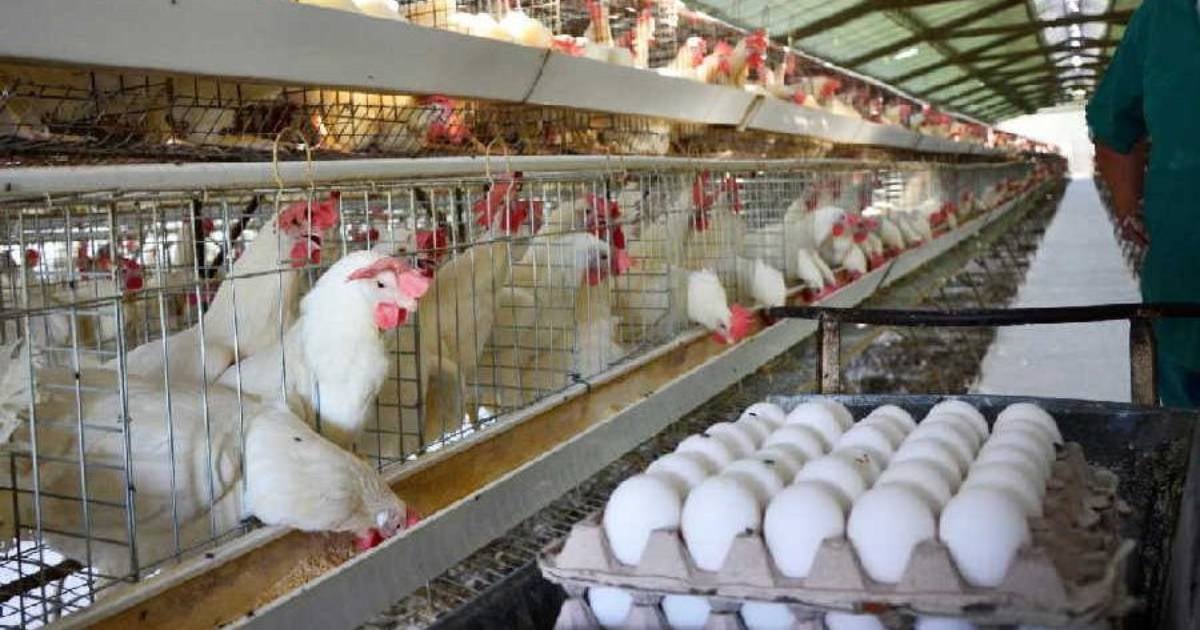Amid one of the most severe crises in the Cuban agricultural sector in decades, the government has initiated a novel experiment in the Sancti Spíritus province to attempt to salvage the dwindling egg production. This initiative, dubbed "egg co-ops," represents a collaboration between the state-run Poultry Company and private entities, aiming to barely maintain supply to social programs.
Launched in November 2024, this proposal emerged from the collapse of state poultry production, following the loss of a significant portion of laying hens due to the unavailability of imported feed. According to the local newspaper Escambray, the joint venture Bioamazonas Pienso S.A. and the small enterprise Landservi are responsible for feeding the hens within a cooperative system. This arrangement ensures they receive 70% of the eggs as compensation, while 30% is allocated for social consumption.
The Harsh Reality Behind the Cooperative Facade
Despite the rhetoric of "cooperation," a much harsher and unequal truth lies beneath: the state can no longer sustain its supply network and resorts to emergency measures by shifting production responsibilities to the private sector. In this scenario, the business sector provides the feed, the state enterprise retains control, and eggs are distributed, if they arrive at all.
Today's Egg, Tomorrow's Promise
Although Juan José Nazco, the provincial Agriculture delegate, acknowledged that "without this decision, we would have neither eggs nor hens today," the volumes achieved remain laughably low compared to demand. In January 2025, only 180,000 eggs were distributed, with the number increasing slightly to 218,000 in February. These were prioritized for pregnant women and children with illnesses, excluding the rest of the population, even vulnerable sectors.
The street reality paints a different picture. By late 2024, a carton of eggs cost as much as 4,000 pesos on the informal market. Although prices temporarily dipped in March, they surged again with the rising dollar and new bottlenecks in importing poultry feed. Residents of Sancti Spíritus, like the rest of the country, can barely recall the last time they could purchase a carton of eggs using their ration book. In this context, cooperatives serve as makeshift lifelines while the state continues to offload the costs of its own failures.
Due to insufficient domestic production, Cuba has resorted to importing eggs, acquiring over 16 million units monthly from the Dominican Republic. The egg production crisis highlights deeper structural issues within the Cuban agricultural system, including shortages of supplies, fuel, and effective planning. Meanwhile, the population continues to struggle to access basic foodstuffs, underscoring the urgent need for more profound and sustainable reforms in the country's agricultural sector.
Understanding Cuba's Egg Production Crisis
What is the "egg co-op" initiative?
The "egg co-op" initiative is a collaboration between the state-run Poultry Company and private actors to maintain egg supply to social programs amidst a production crisis.
How has the egg production crisis affected the Cuban population?
The crisis has led to significantly reduced egg availability, with informal market prices soaring and many unable to access eggs through rationing systems.
Why has Cuba begun importing eggs?
Cuba has resorted to importing eggs due to insufficient domestic production, acquiring over 16 million eggs monthly from the Dominican Republic to meet demand.
